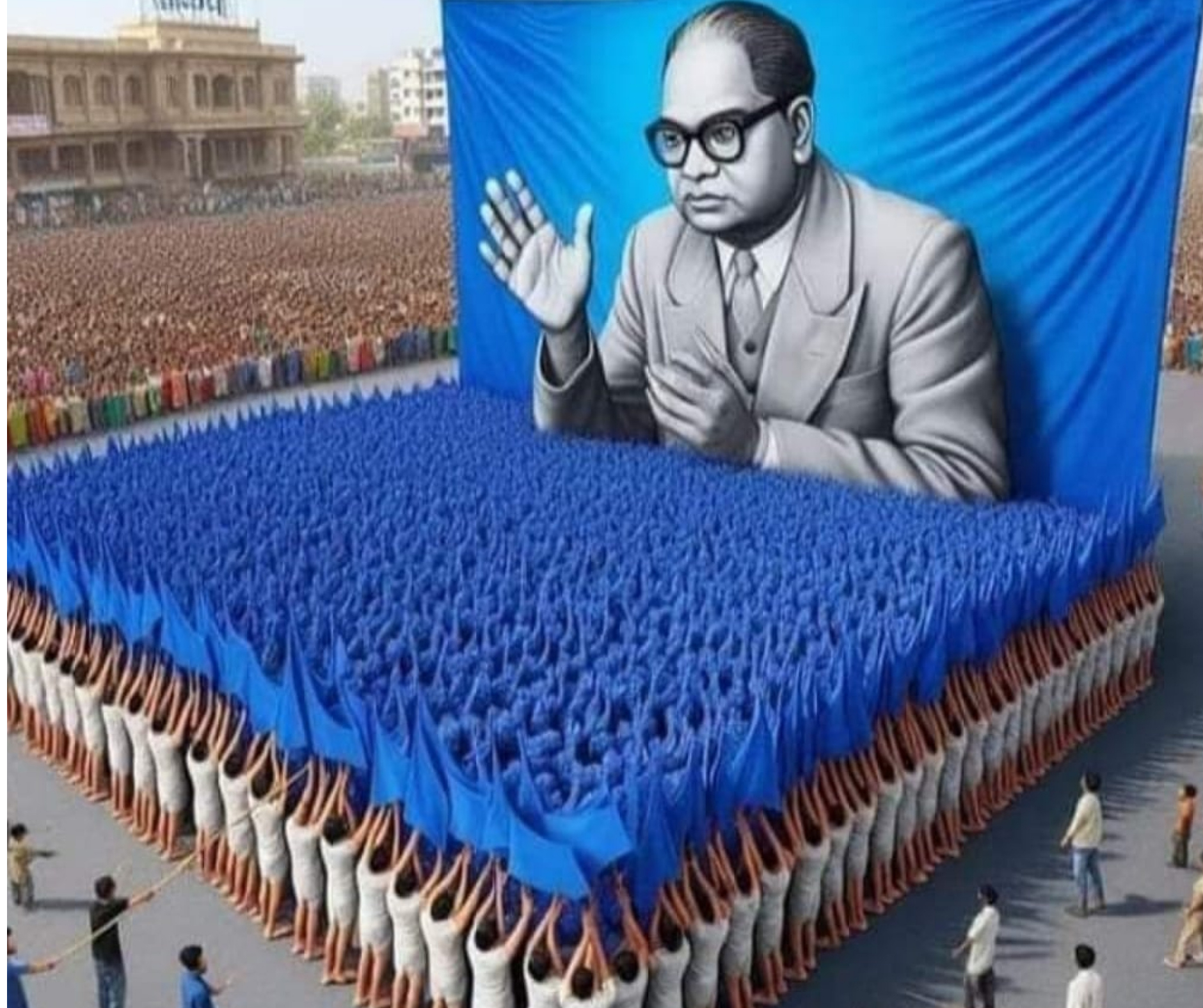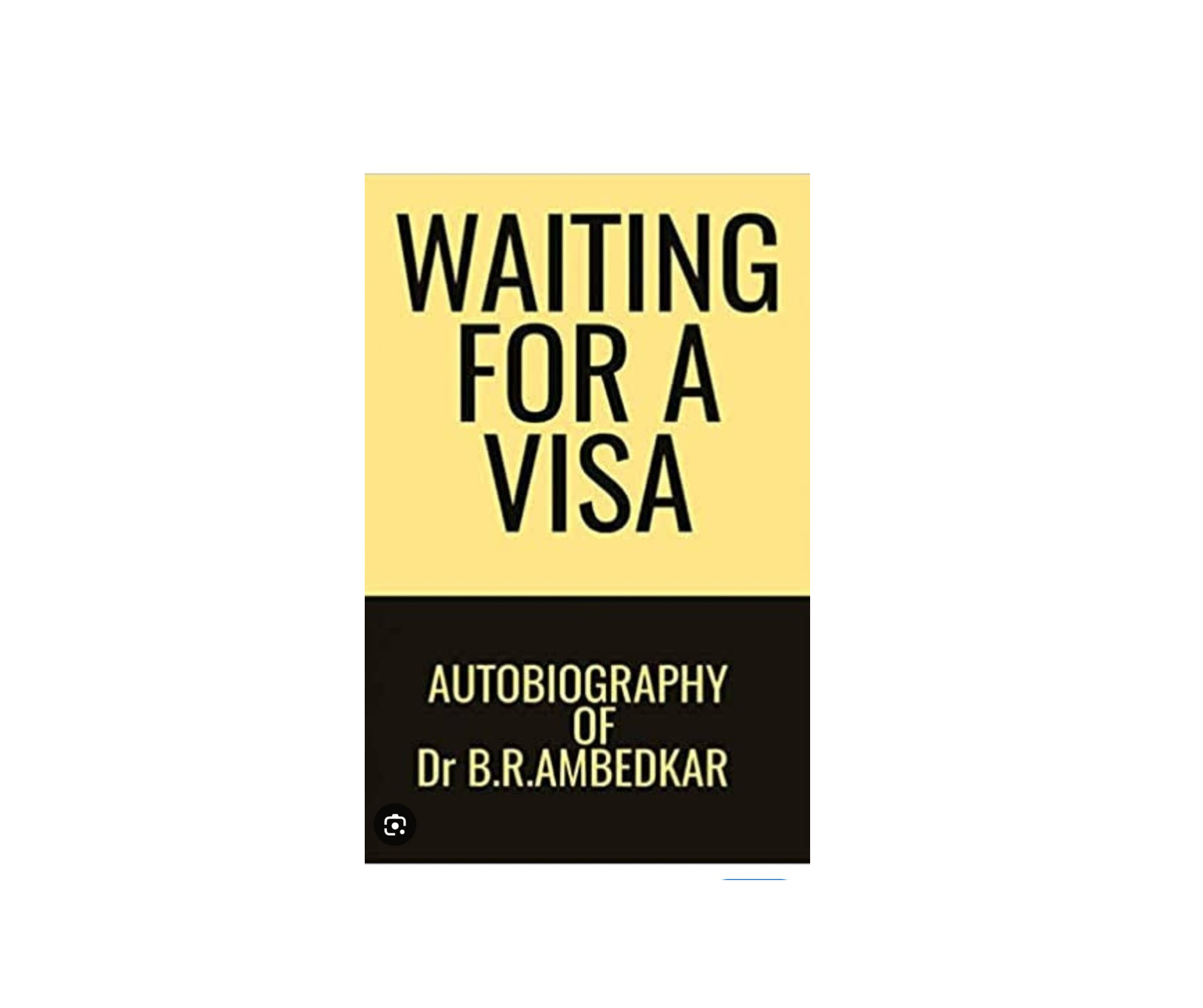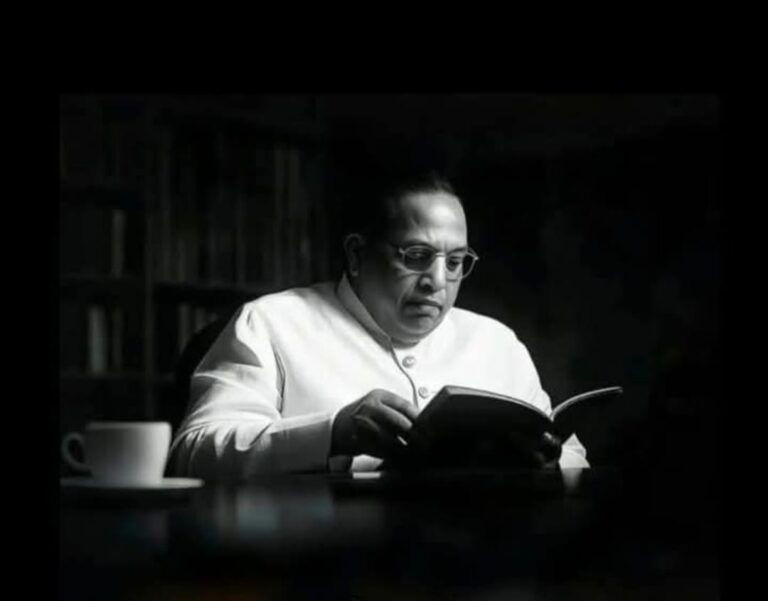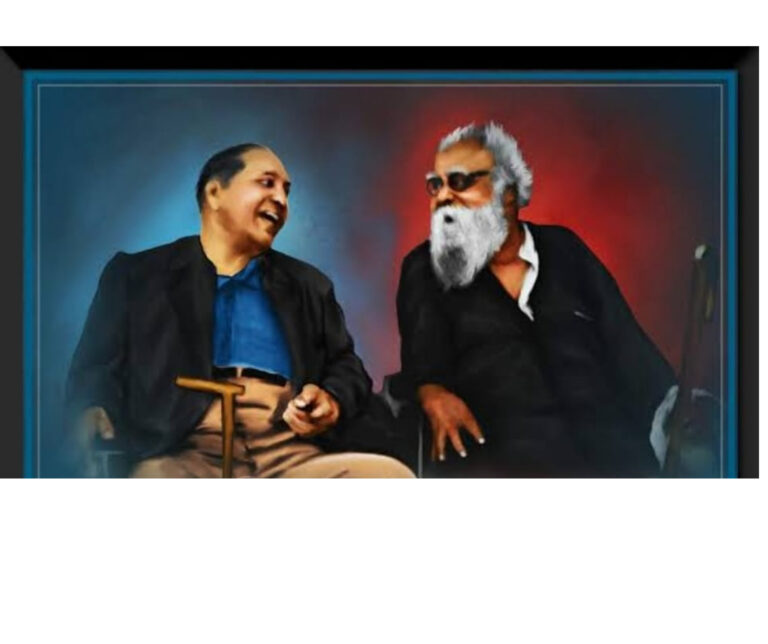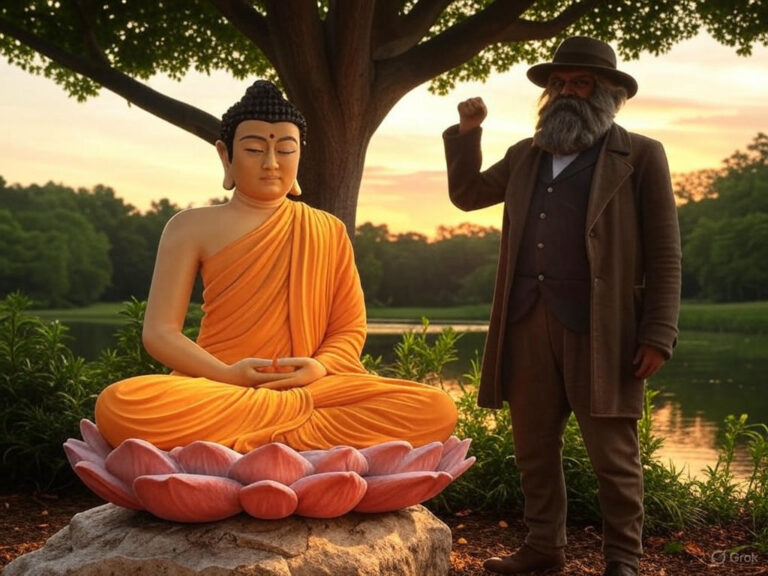Who Was Babasaheb to Workers?
Imagine a time when workers toiled 14 hours a day, no breaks, no safety, just sweat and struggle. Then came Dr. B.R. Ambedkar—Babasaheb—born in 1891 in Mhow, Madhya Pradesh. He wasn’t just the man who wrote India’s Constitution; he was a hero for workers, too. Ambedkar on labour rights isn’t a small story—it’s a big, bold fight to make work fair for everyone, especially the poor and Dalits like him.
I’ve always admired how Babasaheb, a Dalit boy shunned from water taps, rose to shake India’s laws. From 1942 to 1946, as a Labour Member in the Viceroy’s Council, he changed labour rights in India forever. In 2025, with 93% of our workers still informal (2024 estimate), his ideas are gold. Let’s dive into what Ambedkar thought about labour rights, his big wins, and why they matter today, complete with his powerful words.
Labour Rights: Ambedkar’s Heartbeat
For Ambedkar, labour rights weren’t just rules—they were freedom. “A strike is simply another name for the right to freedom,” he said in 1938, fighting a bill that banned strikes. He saw workers—Dalits, women, farmers—as the backbone of India, crushed by caste and greed. He wanted them to stand tall, not bend under bosses.
Back then, British rulers and rich factory owners treated workers like machines—long hours, tiny pay, no safety. Ambedkar, with over 50,000 books in his Mumbai home by 1956, studied this mess. He knew labour rights in India had to mean fair pay, safe jobs, and a voice. In 2025, with 52 crore workers (2017 data), his fight still echoes, especially for the 93% in shaky, informal jobs.
The Big Reforms: Ambedkar’s Labour Laws
Ambedkar didn’t just talk—he acted. As a Labour Member from 1942 to 1946, he rolled out game-changing laws. Here’s what he did:
- 8-Hour Workday: Before 1942, workers slaved 14 hours. At the 7th Indian Labour Conference in Delhi, November 27, 1942, he cut it to 8 hours. “India’s heat demands less work time,” he argued—simple, smart, humane.
- Right to Strike: In 1943, he pushed the Indian Trade Unions (Amendment) Bill—bosses had to recognize unions, or face punishment. “Workers must fight for their rights,” he said—a top Ambedkar quote on labour rights.
- Women’s Rights: On February 8, 1944, he lifted the ban on women working underground in coal mines, saying, “Equal pay for equal work, no matter the sex.” Historic! He also co-drafted the 1929 Maternity Benefits Act, giving women rest and respect.
- Safety and Welfare: He amended the Factories Act (1934)—adding water, washing areas, and fire escapes. The Mines Maternity Benefit Act came too—better lives for women miners.
These weren’t just laws—they were lifelines. In 2025, with gig workers rising—think delivery boys—his push for fairness still fits.
The Independent Labour Party: Workers’ Voice
In 1936, Ambedkar started the Independent Labour Party (ILP)—a group to shout for workers and Dalits. “Labour must rule, not just serve,” he told a crowd in 1943. The ILP won 15 of 17 seats in Bombay’s 1937 elections—huge! On September 17, 1937, he fought to end the Khoti system—landlords squeezing poor farmers in Konkan.
He hated the 1937 Industrial Disputes Bill—it banned strikes. “This is slavery,” he roared in Bombay’s Assembly. Workers marched with him—textile strikes in 1938 showed his pull. His ILP dreamed of state-owned industries—less power for greedy bosses. In 2025, with farmer protests still alive, his worker-first vision shines.
Social Justice Meets Labour Rights
Ambedkar knew that caste and class were tied. “There are two enemies of workers—Brahminism and Capitalism,” he said in a 1940s speech, one of his sharp Ambedkar quotes on labour rights. Brahminism wasn’t just priests—it was the idea that some are “high,” others “low.” Capitalism was bosses hogging profits.
He saw Dalit workers doubly hit—low pay, no respect. In 1927, he led the Mahad Satyagraha—Dalits drinking from a banned lake. That courage came from knowing rights. His labour rights push in India was about dignity—work shouldn’t crush you. Today, 15 caste attacks in Rajasthan (2023) remind us: his fight’s not over.
Key Moments: Ambedkar’s Labour Legacy
Let’s zoom into some big wins:
- 1942 Labour Charter: On September 2, 1945, he released this guide—fair wages, holidays, and safety. It’s the root of today’s labour laws.
- Minimum Wages: In April 1946, he introduced a Minimum Wages Bill, passed in 1948. “No industry should exist if it can’t pay fair,” he said.
- ESI and More: He laid the ground for the Employees’ State Insurance Act (1948)—health help for workers. Employment Exchanges? His idea, too.
Scholar Velusamy Madasamy writes, “Ambedkar’s statutory welfare funds and social insurance are his lasting mark.” In 2025, with 62 million tons of waste yearly (2024 stat), informal workers need their safety nets more than ever.
Challenges He Faced: A Tough Road
Ambedkar’s fight wasn’t easy. As a Dalit, he faced hate—clerks wouldn’t touch his files. British bosses and Indian elites resisted—strikes scared them. In 1946, he quit the Labour post—Congress picked Jagjivan Ram instead. “If labour’s ignored, I’m out,” he hinted.
He lost family—mom at six, dad at 22, four kids—but kept pushing. His 50,000 books weren’t decoration—they were his ammo. In 2025, gig workers—93% informal—face their old foes: no rights, no voice. His struggles are still ours.
Labour Rights in India Today: Ambedkar’s Mirror
In 2025, labour rights in India mix hope and gaps. The 2019 Code on Wages aims for fair pay—Ambedkar’s echo. But 93% informal workers—delivery guys, maids—miss out. “Labour achieves security through laws,” he said in 1945. Today, enforcement is shaky.
On May Day 2025, lakhs will cheer his 8-hour win. Over 5 lakh hit Chaitya Bhoomi yearly (2024 stat)—his spirit’s alive. “Ambedkar gave workers a spine,” says labour leader Saji Narayanan on X, 2024. With 20% of rural kids out of school (2024), his education-labour link still calls.
Conclusion: Ambedkar’s Labour Lesson
Ambedkar on labour rights wasn’t just policy—it was justice. “To whom and for whom is this liberty?” he asked in 1940s debates—another gem among Ambedkar quotes on labour rights. He meant work should free us, not chain us. From 14-hour days to 8, from strikes to safety, he built labour rights in India brick by brick.
In 2025, as India grows—gig jobs, factories, farms—his voice roars: fair work, fair life. On Ambedkar Jayanti, April 14, salute him—light a lamp, thank the man who made your 8-hour day. Babasaheb didn’t just dream of rights; he won them. What will we win next?
